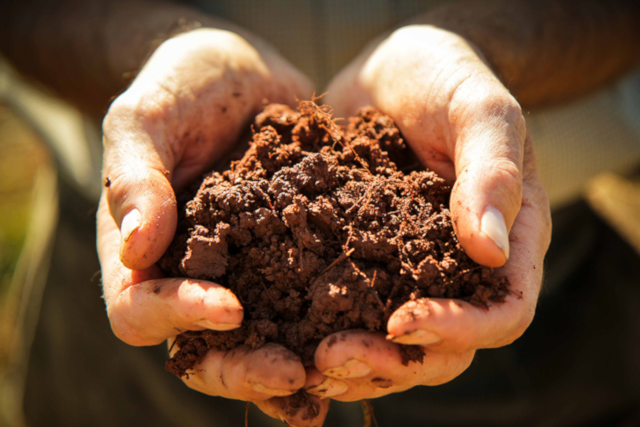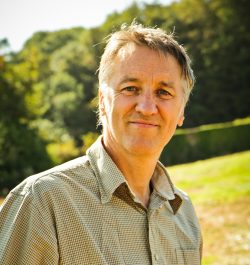Human matters: how we should think of food from the soil up, not the plate down

 Better Food owner and founder Phil Haughton has been a strong and forward-thinking voice in the organic movement for over 40, and in the business of growing and selling organic food for 35 of them.
Better Food owner and founder Phil Haughton has been a strong and forward-thinking voice in the organic movement for over 40, and in the business of growing and selling organic food for 35 of them.
In this article, Phil offers a different idea to the much-discussed ‘global diet’, and considers why we should be looking at feeding the world from a local perspective.
The Lancet report for a new global diet1 is sparking significant interest alongside a growing understanding that this time we really do need to make changes to how we occupy this extraordinary and miraculous planet. This should be welcomed as a major contribution to the food and sustainability debate.
The western diet has developed from a relatively stable relationship with food to one of exploitation and indulgence in just 60 years. As Michael Pollan said “We are amazing to be able to design the only diet that makes people sick”.
The world’s conglomerate food industry is ever more powerful, having vast shareholdings locked into a failed system whose shareholders are reliant on continued exploitation to secure their backing. Our political system leaves governments disempowered and unable to really tackle the issues.
This means it is left to us, the people, to make the change. There are many encouraging signs that a global wake up is taking place. Many grass roots projects and businesses are making it their mission to make a difference, both great and small, and are progressing towards more sustainable food systems, with equality and justice for all at their core.
Let’s look at the diet suggested by this scientific study. It is, in its self, part of the problem. Its narrow set of parameters measure what is happening with diet mostly within the context of the agro chemical industries and how they approach producing food. Of course, they are right that this system has failed and we need to urgently change it. However, the answer lies in a food system that embraces many elements, including soil health, community stakeholders and participation, scale, and biodiversity.
In other words we would do better to focus on how we produce food rather than on diet. If we change farming, we change diet, and I don’t mean change just what we produce, but rather our entire approach.
Land must move from ownership to land rights, and this comes with responsibilities. We must move from trying to feed the world to empowering farmers to feed their communities.
So what we might do is start SLOWLY dismantling the distribution of food across our globe through taxation, to a more localised food system? This would mean many items becoming more of a luxury and less of a right. Almonds, soya, out of season fresh foods, even basics such as rice would be priced out of our normal every day shopping baskets.
Hmm! This is not going to happen is it? Or can it? We already know that 65% of the world’s food is grown by small scale and subsistence farmers serving local communities, so looking on the bright side we only have 45% to go …
It’s very obvious, is it not, that we will have to dismantle the power base around food, from Bayer to Tesco. This cannot be done. Demand for change will not be heard because millions of people are indirectly relying on these companies to provide them with financial security, be it jobs, or pensions etc. Those demanding change generally operate on the outside, and have too few tools to do anything meaningful.
So we have little choice but to infiltrate their board rooms and help them find ways through to a system that nourishes people and communities.
Back in the 1990s, I was asked to give a talk alongside a Sainsbury’s director with a view on the future of retailing and in the end, I chose to offer a bit of theatre. I became the new self-appointed CEO for Sainsbury’s and I set about remodelling the company to one where people mattered and all had a stake in the business, thus transferring shareholders to stakeholders offering a localised pension scheme. Each store was in partnership with local farmers being the base line for the stores range of foods.
We can only change from within and help board rooms have the courage to make the changes so much needed.
Better Food plays its part by attempting to nourish all, both with food and with a real sense of care and service of all.
Our job now is to do what we do even better, to overtly celebrate local foods even more and for it to be even more apparent that this is what we stand for. We will keep telling stories about our wonderful farmers and suppliers, guiding people towards ways we might be in relation to food in a more sustainable way that makes us all feel good and increases our sense of security.
Going back to diet, I would like to offer an alternative. If we ask farmers to feed their community, and to do it in a truly sustainable way then, yes, the number of calories that most of us eat will on average go down, but for most it will include livestock products because we live in a grass filled nation. I won’t attempt to say who should eat what and how much, but rather go back to the farm and offer my thoughts on a new way, which actually includes some old ways.
The fundamentals would be around land rights. This means millions more people helping on the land and being connected to nature, soil health and understanding how regenerative agriculture can lock carbon in our soils.
All seeds would be in the hands of farmers, with no global domination and controls. Livestock would be bred not for narrow gene pools, but quite the opposite. No dairy cows, but rather dual-purpose beef and dairy cows. And the same for chickens. This was the case up until 70 or 80 years ago, and it would not take so long to make this change back. Maybe 20 years?
Pigs and chickens would become our waste converters, be it chickens scratching food after a harvest, or pigs being fed all our food waste. They would be celebrated as great converters of our wastes and surpluses. Tree crops would become vital in the farming mix, again adding carbon to our soils and reforesting our landscape, allowing nature and biodiversity to flourish. Our meat would not be fed on grains at all, other than as a by-product of farming and food processing. This would bring our chicken and pork consumption down to a fraction of what it is today, maybe 10% to 15% worldwide. Eggs would be more seasonal and, as it happens, even more delicious.
Lamb, goats and beef would be a major part of our UK landscape, all eating grass, shrubbage and tree branches and all at massively reduced numbers. These are our great converters of grazing herbage to human food and this system locks in good amounts of carbon which wouldn’t be released if we didn’t plough for grains on the same scale as we do now. Of course, I am aware of the methane issue and that eating meat from grass fed animals still adds to climate change. However with good regenerative farming practice and taking into account the huge carbon sequestration of grass land etc, the greenhouse gas emissions could be little more than 1%2.
Yes, it is clear we have the biggest challenge man has ever faced and our food system is central to the solutions. Our actions now (taking a holistic approach and working from a production end first, not a consumer end) will deliver the best results for sure.
Design from the soil up, not the plate down.
References:
1. http://org/eat-lancet-commission/ (published 16 January 2019)
2. https://www.triodos.co.uk/articles/2019/sustainable-food-trust-a-view-on-the-meat-debate
(published 23 January 2019)
Useful links:
- Veganism is not the key to sustainable development (Jimmy Smith, The Guardian, 16 August 2016)
http://theguardian.com/global-development/2016/aug/16/veganism-not-key-sustainable-development-natural-resources-jimmy-smith) - Organic Farming Can Feed The World (Peter Melchett, Soil Association, 27 November 2017)
http://www.soilassociation.org/news/2017/november/major-new-scientific-research-finds-organic-farming-can-feed-the-world/ - Introduction to Land Use – The Big Picture (United Nations Framework Convention on Climate Change (UNFCCC), 2018 Topics)
https://unfccc.int/topics/land-use/the-big-picture/introduction-to-land-use - Our Planet, Our Health: responding to a changing world (The Wellcome Trust, 2017)
https://wellcome.ac.uk/what-we-do/our-work/our-planet-our-health
Some local perspective:
- Who Feeds Bristol (Joy Carey for Bristol City, published March 2011)
http://www.bristol.gov.uk/documents/20182/32619/Who-feeds-Bristol-report.pdf
